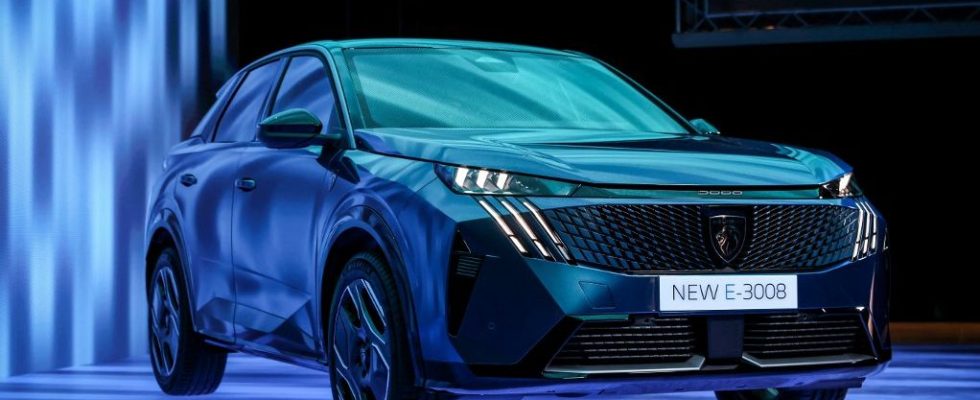Copper, cobalt, aluminum, lithium, graphite, nickel… From the bodywork to the engine, including the battery, the manufacture of a car uses several kilos of these critical metals. This is what they have in common: these materials are so called because of the risk of shortage or even disruption in their supply given the strong demand expected in the years to come.
However, the electric car is essential to succeed in the fight against global warming,” recalls WWF France in a study published this Thursday and which sounds a new call for the “de-uvization” of the French car, three years ago a first report from the NGO which already called for doing so.
SUVs that consume three times more copper and aluminum
The problem with the electric car is its size, points out Jean Burkard, director of advocacy at WWF France, stressing that SUVs now constitute 41% of sales of these vehicles.
However, a large electric SUV consumes 3 times more copper and aluminum and 5 times more lithium, nickel and cobalt than a small electric city car,” reveals the study. Demand for rare metals could thus be multiplied by 30 in 20 years, fears the International Energy Agency, which is concerned about the insufficiency of production to meet this booming demand.
In this context, France is in an unfavorable position, as it produces very few of these critical metals on its soil. This poses “geostrategic risks” according to Jean Burkard, and means that in the event of a shortage, “we will have to choose between having electric vehicles, wind turbines or electrical networks.
In its study, WWF studied three “realistic” scenarios and their consequences: that of “letting go” where everything would continue as today, that of “intermediate” where current policies would have an effect on demand and that of “sobriety », with more proactive policies to reduce the size of vehicles and dependence on the car.
A demand that risks exceeding our economic weight
The result is clear: “If we do not adopt this scenario of sobriety”, France’s demand for “critical” metals will be between 5 and 15% too high “in relation to its economic weight”, details Jean Burkard.
On the other hand, in the sobriety scenario, demand would be “less than 25%” of the country’s economic weight, even opening the way to the export of lithium – a precious metal whose price has soared and of which we have deposits on our territory. sol-, “an important asset for the French trade balance”, he points out.
“De-SUVizing the electric market” by taking the sober route “will already reduce demand (for critical metals) by 17% in 2035 compared to a hands-off scenario,” the report adds.
Play on the “weight penalty” and “ecological bonus” levers
To reduce the size of electric vehicles, WWF calls on the government to introduce “a specific weight penalty” and, in mirror image, “to reserve the ecological bonus only for electric cars weighing less than 1.6 tonnes”, compared to 2.4 currently.
The association also recommends “requiring car manufacturers to annually publish the average weight of registered electric cars” and creating a European penalty of 5 euros per kilo as soon as the threshold of 1.6 tonnes is exceeded.
Responding in advance to the objections, the WWF proposes to introduce an exemption for large families – obliged to opt for a large vehicle – who would benefit from a “special regime”. In detail, the study recommends for these large families a bonus for the purchase of a car weighing more than 1.6 tonnes (but less than 2 tonnes) and a reduced penalty for the purchase of a heavy, spacious electric car.

